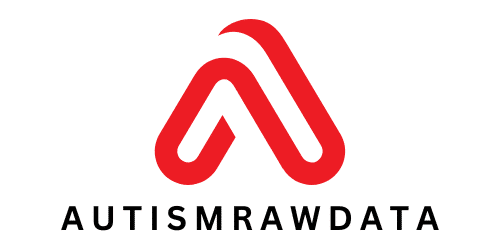With the increasing global demand for water, the need for its sustainable management and conservation has been more important than ever. In the UK, one potential solution that is gaining traction is the use of smart water meters. Unlike traditional water meters, these smart devices provide real-time data on water usage, making it possible for customers to monitor and control their water consumption effectively. This article explores how smart water meters can help UK households in water saving and the relevant implications for energy management and public resources.
Understanding Smart Water Meters
Before delving into the benefits of smart meters, it’s crucial to understand what they are and how they work. As you may have guessed from the name, a smart water meter is a digital device that records and transmits real-time data about a household’s water usage. This real-time feedback can then be used by customers to manage their water consumption more effectively.
Lire également : What Is the Latest in Microfluidic Devices for Disease Diagnostics?
Unlike traditional meters that only provide total consumption figures, usually on a monthly or quarterly basis, smart water meters provide detailed usage data. This includes how much water is being used at different times of the day, allowing for a more in-depth analysis of consumption patterns. This kind of open data access is what makes these smart meters stand out.
How Smart Meters Help in Reducing Consumption
The core purpose of a smart water meter is to provide detailed usage data to the customer. But, how exactly does this help in reducing water consumption?
Sujet a lire : What Are the Latest Advances in Electric Jet Engines for Aircraft?
For starters, the high-resolution data from smart meters makes it possible for customers to identify any unusual or excessive water usage. This allows for the early detection of water leaks, which can contribute to significant water wastage if left unchecked. The smart meter would send an alert to the customer, who can then take quick action to fix the problem and prevent further wastage.
Additionally, the data provided by smart water meters can also be used to educate customers about their consumption habits. By understanding which appliances or practices are using the most water, customers can make informed decisions about where to reduce usage.
The Role of Smart Meters in Energy Management
Beyond water saving, smart water meters also play a significant role in energy management. This is because water usage is inextricably linked to energy consumption.
For instance, heating water for domestic use accounts for a substantial portion of a household’s energy consumption. By reducing water consumption through the use of a smart meter, households can also lower their energy usage. This not only results in cost savings but also helps in reducing carbon footprint, contributing to the wider effort towards sustainability.
Public Resources and Smart Meters
Implementing smart water meters on a wide scale across the UK could also have significant implications for public resources management.
For one, the detailed data provided by smart meters can be invaluable for water supply companies in managing their resources. By having a clear understanding of water consumption patterns from the data provided by the smart meters, these companies can ensure that they are providing an adequate supply without overstretching their resources.
Moreover, on a broader scale, the implementation of smart water meters can support the government’s efforts towards sustainability and energy efficiency. By promoting water-saving behaviours among households, the demand for water can be managed more effectively, ensuring a more sustainable use of this essential resource.
Business Support for Smart Meters
The introduction of smart water meters in the UK has also received considerable support from businesses, particularly those in the water supply industry.
For businesses, the data provided by smart meters can help them better understand their customers’ usage patterns, enabling them to tailor their services more effectively. For instance, if a particular area shows consistent high usage during certain times of the day, a water supply company can adjust its supply to meet this peak demand.
In addition, businesses can also use this data to develop more effective water-saving initiatives. By understanding how their customers use water, they can design programs or offers that encourage water conservation. This, in turn, can help businesses improve their sustainability credentials, which is increasingly important in today’s environmentally-conscious market.
In conclusion, while there are still challenges to overcome, the implementation of smart water meters presents a promising opportunity for water conservation in the UK. By providing real-time data on water usage, these devices can help households manage their consumption more effectively, leading to significant water and energy savings. Furthermore, the data from smart meters can also be a valuable resource for businesses and government bodies in their management of water resources. As such, the smart water meter could well be a crucial tool in the UK’s push towards greater sustainability.
Saving Money and the Environment: The Impact of Smart Meters
When it comes to the manifold benefits of smart water meters, financial savings and environmental protection are at the forefront. By monitoring water usage precisely and providing real-time updates, these innovative tools empower households to take control of their water consumption. This can lead to significant reductions in water bills, making smart meters a financially smart decision.
According to Utility Week, a media brand dedicated to the utility industry, smart meters can lead to an average reduction of 12% in water consumption. This, in turn, translates to lower water bills, offering potential savings to households. Considering that water bills are a significant expense for many households, even a small reduction in usage can make a big difference over time.
On the environmental front, smart meters play a pivotal role in combating climate change by promoting more responsible use of water. The consumption and treatment of water, particularly drinking water, are energy-intensive processes that contribute significantly to greenhouse gas emissions. By reducing water usage, households can indirectly decrease their carbon footprint, contributing positively to environmental conservation.
In this regard, the water industry is increasingly promoting smart meters as a key tool for achieving sustainability goals. For example, water companies can use the data from smart meters to optimize their water treatment processes, further reducing energy consumption and environmental impact.
The Future of Smart Water Metering in the UK
As we look towards the future, it’s clear that smart water meters have a significant role to play in the UK’s sustainable management of water resources. Despite some challenges such as initial installation costs and data privacy concerns, the benefits of these devices are undeniable.
In fact, many experts in resources management believe that smart metering could be the key to meeting the UK’s future water supply needs. According to a report by the Water Resources East, by 2040, the UK could face a water deficit of up to 3 billion litres per day due to population growth and climate change. Smart meters could be instrumental in avoiding this deficit by promoting water-saving habits among households.
Moreover, the advancement of technology is likely to improve the functionality of these devices, making them even more effective in helping households save water. For example, future smart meters could be integrated with other smart home devices to automate water-saving practices, such as shutting off water supply when no one is at home.
In conclusion, smart water meters are more than just a tool for monitoring water consumption—they are a key part of the solution to the UK’s water management challenges. By empowering households to monitor, understand and control their water usage, smart meters can lead to significant savings – both financial and environmental. Moreover, the data from these devices can support water companies and government bodies in their efforts towards sustainable water resources management. With growing support from businesses and the public, the future looks bright for smart water metering in the UK.






